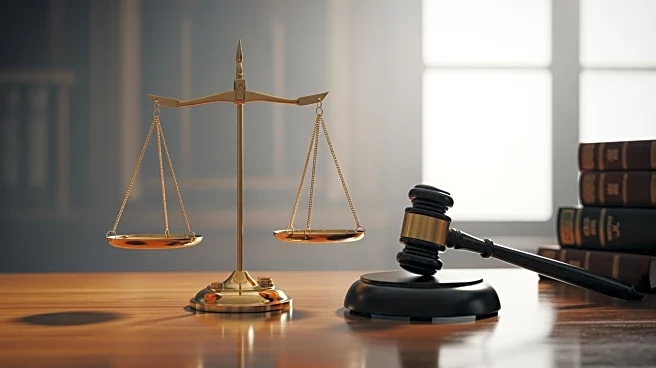What's Happening?
Federal appeals court judge Emil Bove has emphasized the need for judicial deference to the executive branch in a deportation case. In his concurring opinion, Bove argued against an administrative stay
that delayed a deportation order, stating that such actions interfere with the Department of Homeland Security's operations. The case involved a petitioner who overstayed his visa and filed a petition in the wrong court. Bove, a former Justice Department official under President Trump, highlighted the importance of respecting executive functions and minimizing judicial interference in immigration enforcement.
Why It's Important?
Bove's stance underscores a broader debate about the balance of power between the judiciary and the executive branch, particularly in immigration matters. His opinion reflects a perspective that prioritizes executive authority in enforcing immigration laws, which could influence future cases and policies. This approach may lead to more streamlined deportation processes but also raises concerns about checks and balances and the protection of individual rights. The decision could impact how similar cases are handled, potentially affecting thousands of immigrants facing deportation.
Beyond the Headlines
The emphasis on judicial deference in immigration cases may have long-term implications for the U.S. legal system. It could set a precedent for reduced judicial oversight in other areas of executive action, potentially altering the role of the courts in checking executive power. This development may also provoke discussions about the ethical and legal responsibilities of judges in maintaining a balance between enforcing laws and protecting civil liberties.











